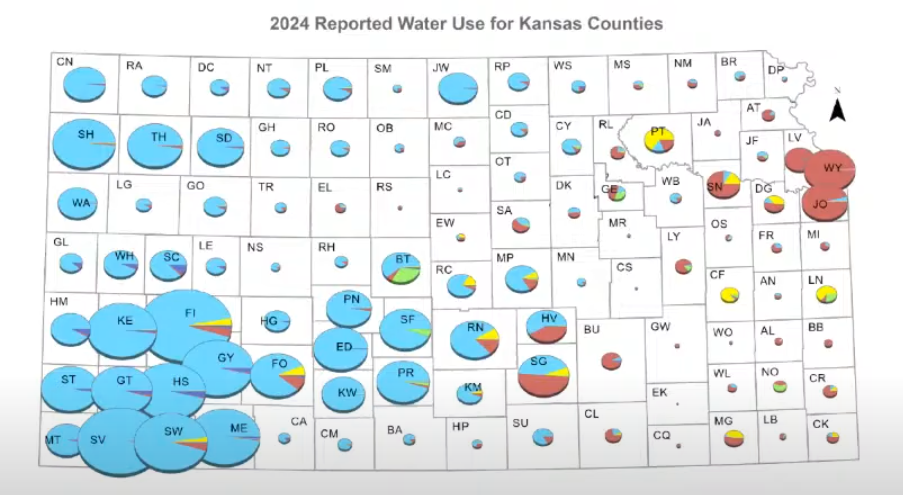
By BECKY KISER
Hays Post
In her second term as governor and final 18 months in public office, Gov. Laura Kelly has elevated water in Kansas to her highest priority, her "North Star."
"All the other issues are important as well," she said in an interview with Hays Post, "but if we don't do something about water, none of that will matter in the long run."
Some areas of western Kansas dependent on the Ogallala Aquifer have fewer than 25 years of usable water left, according to the Kansas Geological Survey.
More than 150 communities are at or above the acceptable nitrate levels in their drinking water.
In the past legislative session, Kelly signed a bipartisan bill creating the Water Program Task Force. A ceremonial signing of House Bill 2172 was in Hays on July 9 in recognition of the city's long-time leadership in water conservation programs and practices.
The new task force met for the first time on July 21 in Topeka. It is charged with developing a long-term sustainable strategy for dealing with water that also includes a dedicated funding source.
Kelly plans to spend her political capital to tackle a politically charged issue.
"This is certainly not the first time we've talked about water in Kansas," she said. "There have been many other sophisticated, thoughtful water plans put into place over the years by previous administrations.
"But none of them really got implemented in a long-term way that makes a consistent difference. Part of that is because it is so incredibly controversial in many ways. ... You've got different sides of the state with different water issues that need different kinds of solutions and interventions. And there are so many stakeholders."
There are approximately 20 state entities involved in water regulations. That's too many, Kelly said.
"It's going to be painful for some people. It will be political, and it will be controversial. But it's absolutely essential we have those conversations and make those decisions going forward," she said.
The governor, who is not a member of the task force, wants to see a more efficient and streamlined process of dealing with water management in Kansas.
She likens the idea to the state's comprehensive highway program created almost 40 years ago.
"Just like roads and bridges, water is not something you can fund on a year-in and year-out basis. It's got to be a long-term guaranteed funding structure so that projects that overlap a budget year can be funded and carried through," Kelly said.
It is up to the task force to research funding possibilities, she said, and then to come up with recommendations to present to the legislature.
Members of the task force include area state representatives Rep. Jim Minnix, R-Scott City, and Ken Rahjes, R-Agra. Minnix is a co-chair along with Sen. Kenny Titus, R-Wamego.
Last week's inaugural meeting agenda was intentionally broad in scope with an overview of water management, funding and planning in Kansas. The presentations then focused on evaluating future and current risks to groundwater and surface water quantity.
"I'm encouraged by the progress that we've made and what is to come," Kelly said. "Now is the time to follow through and deliver a safe and resilient water supply for the generations of Kansans to come."






